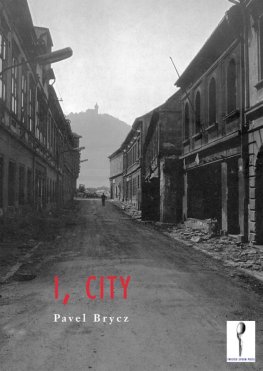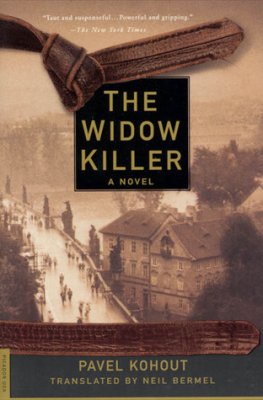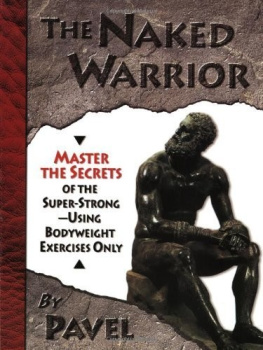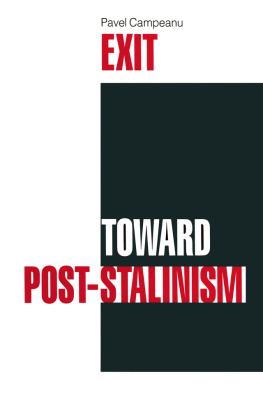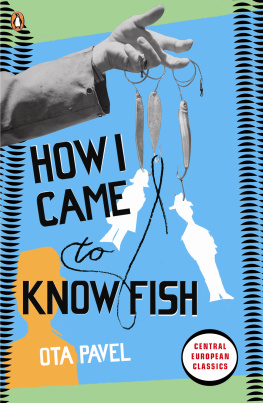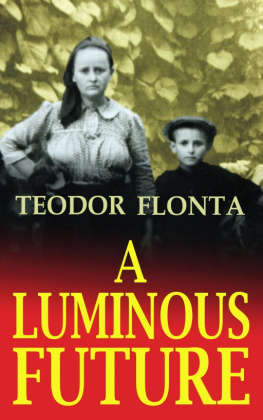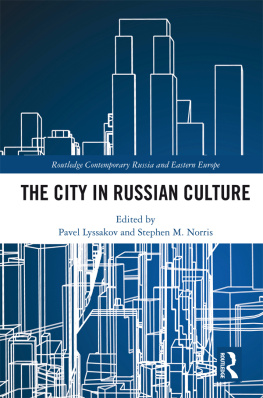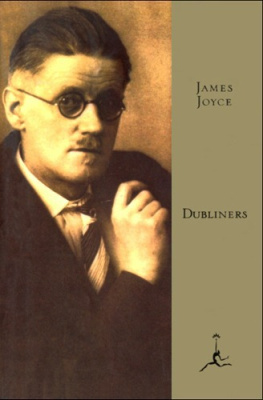Pavel Brycz - I, City
Here you can read online Pavel Brycz - I, City full text of the book (entire story) in english for free. Download pdf and epub, get meaning, cover and reviews about this ebook. year: 2006, publisher: Twisted Spoon Press, genre: Prose. Description of the work, (preface) as well as reviews are available. Best literature library LitArk.com created for fans of good reading and offers a wide selection of genres:
Romance novel
Science fiction
Adventure
Detective
Science
History
Home and family
Prose
Art
Politics
Computer
Non-fiction
Religion
Business
Children
Humor
Choose a favorite category and find really read worthwhile books. Enjoy immersion in the world of imagination, feel the emotions of the characters or learn something new for yourself, make an fascinating discovery.
- Book:I, City
- Author:
- Publisher:Twisted Spoon Press
- Genre:
- Year:2006
- Rating:3 / 5
- Favourites:Add to favourites
- Your mark:
- 60
- 1
- 2
- 3
- 4
- 5
I, City: summary, description and annotation
We offer to read an annotation, description, summary or preface (depends on what the author of the book "I, City" wrote himself). If you haven't found the necessary information about the book — write in the comments, we will try to find it.
I, City — read online for free the complete book (whole text) full work
Below is the text of the book, divided by pages. System saving the place of the last page read, allows you to conveniently read the book "I, City" online for free, without having to search again every time where you left off. Put a bookmark, and you can go to the page where you finished reading at any time.
Font size:
Interval:
Bookmark:
Pavel Brycz
I, City
AN APPEARANCE, HEROIC
If you stop at the corner of two streets there among the small houses you might know as Na pakrn, in the quarter of the city irreversibly called Stalingradsk (at least thats what people still call it, for there is no greater paradox of history than calling the small by great names) you will encounter two memorials to the victims of the miners strikes of Most.
The strikes numbered two, during them eight people were shot. One strike was in 1920, the second and more famous one in the Year of Our Lord 1932. I am not a poet, I am a city, ill equipped to write about the affairs of people. I am a city, a new city. I cannot bear witness to the past, I can describe only what I see.
And here, among the full-grown, needle-leaved shrubs, I see a stone.
And on the stone:
THIS & THAT, FROM HERE & THERE, AGE, MINER
THIS & THAT, FROM HERE & THERE, AGE,
MASTER SHOEMAKER
One sunny day in June, a twenty-six-year-old poet born in Old Most brought his friend Pedro from Lisbon to the memorial.
The poet thought hed introduce his friend, the Portuguese poet, to the utter absurdity he experienced in his every encounter with the memorial to the miners strikes. He laughed at the mere memory of the Youth League shirts worn by he and his Gymnasium classmates, released from afternoon lessons and obliged to stand astride the officers of the army and the peoples militia. Comrades laid wreaths, another comrade delivered a speech, and after the address the Internationale was sung. The Gymnasium boys, like our poet, were born in the year 1968. They couldnt stand memorials, comrades, Youth League shirts or wreaths.
And they couldnt stand the Internationale.
But they liked playing pranks.
So we also sang the Internationale, to the grumbling of those fat old farts, who were in uniform, with their rifles slung over their shoulders, but we sang it in the original, in French, Mosts poet explained to his Portuguese friend. They were totally confused, as were our teachers, and the army officers as well, none of those comrades knew what to do, even given their excellent cadre profiles, the lessons theyd learned about crisis development engraved deep in their faces. They didnt know whether they were supposed to forbid our singing as an impertinent provocation, or to appreciate that for the first time we were singing along with them, in unison.
We sang, and in so doing we laughed at their parades, at their memorials, at their eternal fear of a freedom that for them was only the recognition of necessity.
Mosts poet finished his story, and approached the memorials. The Portuguese poet read to himself the names of the long dead as well.
And, suddenly, they became completely serious, and forgot the laugh for which they had come. No longer was there the absurdity of the Internationale and the Youth League shirts. Only the two of them and the shot dead remained, and the young men felt a profound sadness for the fact that people sometimes dont know how to be people.
I am only a new city, not a person.
I am not a hero. I have never defended my walls. But when people on my streets and in my houses are truly human, I feel heroic.
I have remembered these poets.
AN APPEARANCE, NOSTALGIC
Sometimes, I feel like meeting my Old Town. I dream that my new streets would hitch to its cobblestones, that the Bla would flow through the old riverbed and me and Old Most would be Siamese twins, the Gemini glued, the Moon in conjunction with the Sun.
I know its not possible, and the remnants of Old Most only reassure me.
Ill never step into the same Bla twice with my Old Town, but if cities die like everything else alive on this planet, then I believe that one day well meet in Paradise.
Until then, with me its like in that poem upon the theme of the UNENCOUNTER, which a man dedicated to a woman he never met:
No, I didnt see you in the Berolina neon
a circus that came from the Alps.
Perhaps the huge elephants hid you from view
perhaps the camels, perhaps the darkness.
You were in the front row with a beautiful lady?
But I was there, too!
Both of us with mommies
the pistachio ice cream
No, I didnt see you in the whirl of masks
perhaps my pride was evil.
Perhaps the cowboys hid you from view
perhaps the princesses, perhaps the darkness.
You were in the mask of a beautiful lady?
But I was, too!
Both of us with mommies
the pistachio ice cream
No, I didnt see you at our schools ball
perhaps I was drunk as a Dane.
Perhaps the white mice hid you from view
perhaps the camels, perhaps the darkness.
You sat in the gallery with a pretty lady?
But I was there, too!
Both of us with mommies
the pistachio ice cream
What more can one say?
Sometimes, all the pistachio ice cream runs out.
AN APPEARANCE, AMOROUS
Love is a Magnetic Mountain. If it gets hold of you, it doesnt let go. It will never forsake you. I, city, know that well.
For ten years, on the sidewalk under the windows of the boarding school, i love you had been painted in red by an unknown author, until with the rain, snow, and sun it was gone.
All the girls living behind those windows could confirm this. Speaking for them all, there is, for example, Zora Veseck child star of 70s television who, during her short stay in the city, observed herself as the object of this declaration, too.
I remember the inscription of an unknown vandal on the wall of the army barracks:
MY GOD, MY GOD, WHY HAST THOU FORSAKEN ME?! Who so desolated his heart?
And who was the author? Was he a soldier, a student of theology, or possibly both?
Both.
He who has not been to Hnvn has not been to Most.
And what citizen hasnt been there on a date at least once in his life?
Well, as Ive said:
Love is a mountain.
Hnvn is a Mountain Magnetic.
AN APPEARANCE, LINGUISTIC
Prague is a small Paris. Whenever you come to the Champs Elyses, you can meet Prague there. She is small, lost, crying, she takes you by the hand and wants home.
Most is also Prague, Paris, Babylon, but linguistically speaking. As people came to metropolises from all over the place, a tangle of languages arose. Its not any different in Most.
After all, nearly all Mosters have made their ways here from other places, and by now their language has become an industrial conglomerate. From the older residents you can still hear the influence of hard Sudeten German. And so the Czech of my citizens doesnt sing like the speech of Hradecers, Budjovicers, Brnoers or Beclavers.
Hearing the talk of a Moster, you can most often mistake him for a Praguer.
Yet it is possible to sing even in the Czech of Most. It is, however, a song of a burnt tongue, of a burnt land, and so all the more convincing.
Everyone who cares for it has a soul, though short of breath from the everlasting smog and distressed by the great expanses of concrete apartment blocks yet a soul. And only a soul gives words meaning and joy to speech.
Believe me: though I am only a city, I dont want my hearts people to be mute.
I want to be their lost child on the boulevard of the Champs Elyses, who they take under their wing and lead home.
AN APPEARANCE, WINTRY
They were cold; they trudged through the mud with nowhere to go. So they went to the planetarium to look at the stars. They wanted to lie alongside one another, to look at the stars up above them; they wanted to get warm. But in the planetarium, the dazzling sky tore free, all the stars went off to the movies and he and she stood helpless in the lobby of the House of Culture. They were fifteen and didnt know what to do next.
Font size:
Interval:
Bookmark:
Similar books «I, City»
Look at similar books to I, City. We have selected literature similar in name and meaning in the hope of providing readers with more options to find new, interesting, not yet read works.
Discussion, reviews of the book I, City and just readers' own opinions. Leave your comments, write what you think about the work, its meaning or the main characters. Specify what exactly you liked and what you didn't like, and why you think so.

